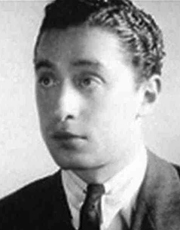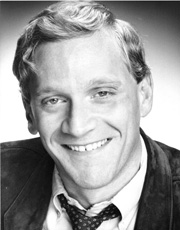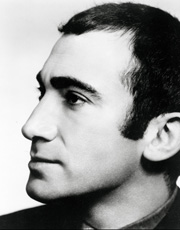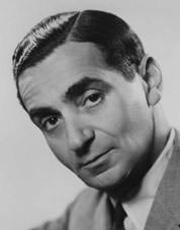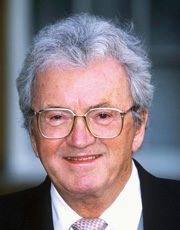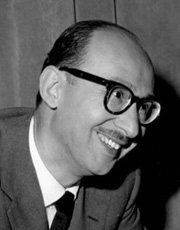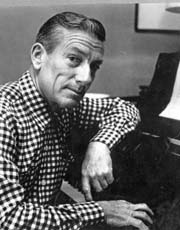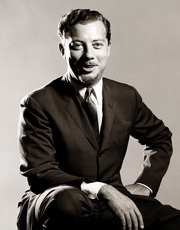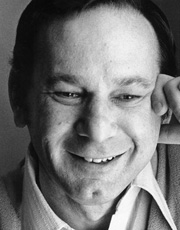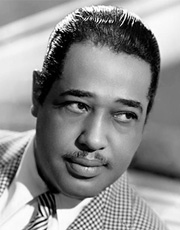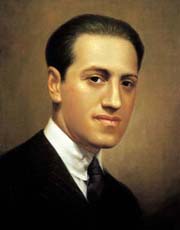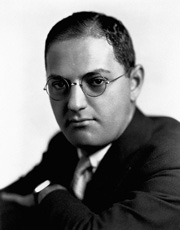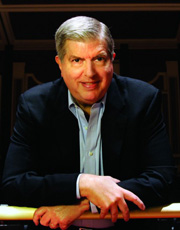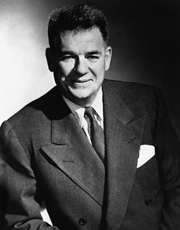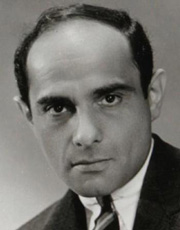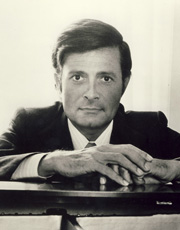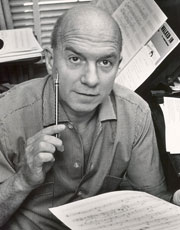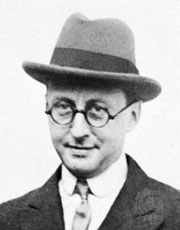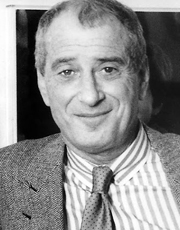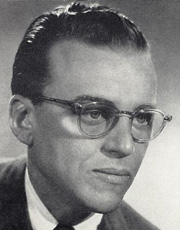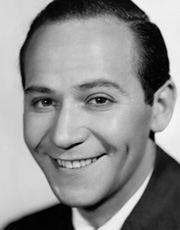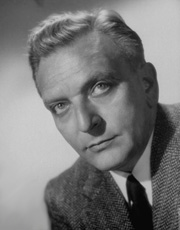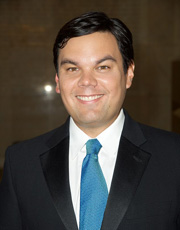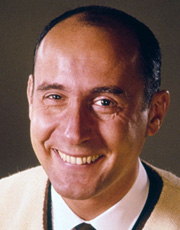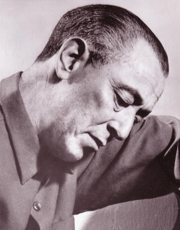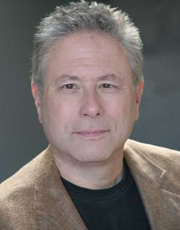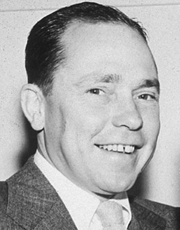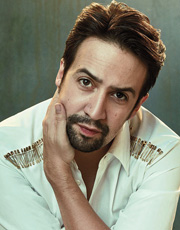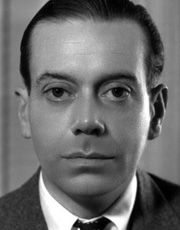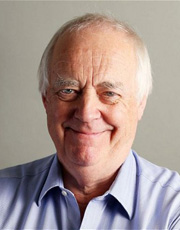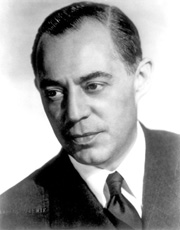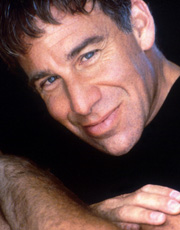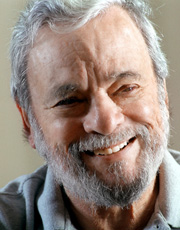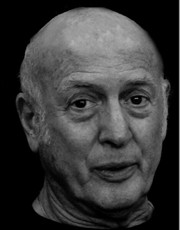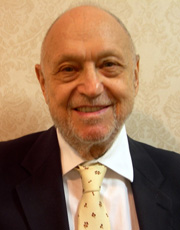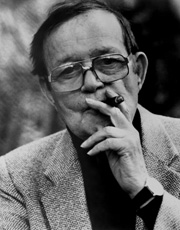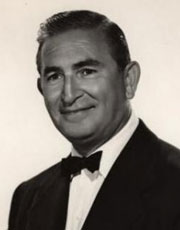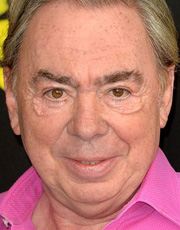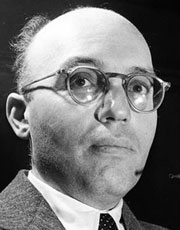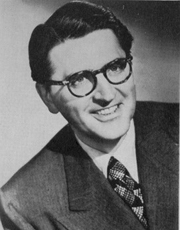In Celebration of the Human Voice - The Essential Musical Instrument
Home | Doo Wop | Barbershop | World | Contemporary | Christian | Vocal Jazz | Choral | Christmas | Instructional | Arrangements
Classical | Opera | Musicals | Personality | Young Singers | Disney | Videos | Songs | The Artists

Composers of Musicals and Standards
Displaying 1 - 41 of 41 items.
Harold Arlen
Harold Arlen was an American composer of popular music, having written over 500 songs, a number of which have become known worldwide. In addition to composing the songs for the 1939 film The Wizard of Oz (lyrics by E.Y. Harburg), including the classic "Over the Rainbow", Arlen is a highly regarded contributor to the Great American Songbook. "Over the Rainbow" was voted the twentieth century's No. 1 song by the Recording Industry Association of America (RIAA) and the National Endowment for the Arts (NEA).
Howard Ashman
Howard Elliott Ashman was an American playwright and lyricist. He collaborated with Alan Menken on several works and is most widely known for several animated feature films for Disney, for which Ashman wrote the lyrics and Menken composed the music. Ashman and Menken began their collaboration with the musical God Bless You, Mr. Rosewater (1979), for which Ashman directed and wrote both book and lyrics. Their next musical, Little Shop of Horrors (1982) for which Ashman again directed and wrote both book and lyrics, became a long-running success and led to a 1986 feature film. The partnership's first Disney film was The Little Mermaid (1989), followed by Beauty and the Beast (1991). After his death, some of Ashman's songs were included in another Disney film, Aladdin.
Lionel Bart
He was born Lionel Begleiter, the youngest of seven surviving children of Galician Jews, Yetta (nee Darumstundler) and Morris Begleiter, a master tailor. He grew up in Stepney; his father worked in the area as a tailor in a garden shed. He started his songwriting career in amateur theatre, first at The International Youth Centre in 1952 where he and a friend wrote a revue together called IYC Revue 52. The following year the pair auditioned for a production of the Leonard Irwin play The Wages of Eve at London's Unity Theatre. Shortly afterward Bart began composing songs for Unity Theatre productions, contributing material (including the title song) to its 1953 revue Turn It Up, and songs for its 1953 pantomime, an agitprop version of Cinderella. While at the Unity he was talent-spotted by Joan Littlewood, and so joined Theatre Workshop. He also wrote comedy songs for the Sunday lunchtime BBC radio programme The Billy Cotton Band Show.
Irving Berlin
Meet the man who wrote "God Bless America". His name was Irving Berlin, one of the greatest American songwriters of his time. His life began in a foreign country, as one of eight children of Leah and Moses Baline. He grew up and greatly impacted society from the many famous songs and plays he wrote, while most of them are still very popular today. We are talking about the man who started out in a poor town in Russia, then came to the United States and made it big.
Irving Berlin was born under the name Israel Isidore Baline on May 11, 1888 in Mogilyov, Russia. He came to America with his family at age five to escape the pogroms in Russia. The family settled in New York City, where Israel and his brothers sold cheap newspapers on the street to support their family after the death of his father. Not long after, he became a singing waiter, which started him off in the singing business. Israel began composing songs. He couldn't read music, but taught himself to play piano enough so he could write his own music.
Leslie Bricusse
Bricusse was educated at University College School in London and Gonville and Caius College, Cambridge. In the 1960s and 1970s, Bricusse enjoyed a fruitful partnership with Anthony Newley. They wrote the musical Stop the World - I Want to Get Off (1961) which was successful in London and on Broadway, and was made into a (poorly received) film version in 1966. Also in collaboration with Newley, Bricusse wrote The Roar of the Greasepaint-the Smell of the Crowd (1965) and Willy Wonka & the Chocolate Factory (1971), based on the children's book by Roald Dahl, and for which they received an Academy Award nomination for Best Original Song Score. When he collaborated with Newley, the two men referred to themselves as the team of "Brickman and Newburg", with "Newburg" concentrating mainly on the music and "Brickman" on the lyrics. Ian Fraser often did their arrangements.
Sammy Cahn
Sammy Cahn was an American lyricist, songwriter and musician. He is best known for his romantic lyrics to films and Broadway songs, as well as stand-alone songs premiered by recording companies in the Greater Los Angeles Area. He and his collaborators had a series of hit recordings with Frank Sinatra during the singer's tenure at Capitol Records, but also enjoyed hits with Dean Martin, Doris Day and many others. He played the piano and violin. He won the Academy Award four times for his songs, including the popular song "Three Coins in the Fountain".
Among his most enduring songs is "Let It Snow! Let It Snow! Let It Snow!", cowritten with Jule Styne in 1945.
Hoagy Carmichael
"I wore my hat on the back of my head and no tie, with a cigarette drooping from my lips, and I lazied through the entire performance," Hoagy said, describing his historic, record-breaking performance at the London Palladium in 1951. That was the image Hoagy created and the world embraced. Behind it, invisible, was someone else--the passionate and poetic young man he'd once been, the poor kid from Indiana with a fierce ache to succeed.
Cy Coleman
Coleman was born Seymour Kaufman on June 14, 1929, in New York City to Eastern European Jewish parents, and was raised in the Bronx. His mother, Ida (nee Prizent) was an apartment landlady and his father was a brickmason. He was a child prodigy who gave piano recitals at Steinway Hall, Town Hall, and Carnegie Hall between the ages of six and nine. Before beginning his fabled Broadway career, he led the Cy Coleman Trio, which made many recordings and was a much-in-demand club attraction.
Hal David
David was born in New York City, a son of Austrian Jewish immigrants Lina (nee Goldberg) and Gedalier David, who owned a delicatessen in Brooklyn, and younger brother of American lyricist and songwriter Mack David. He is credited with popular music lyrics, beginning in the 1940s with material written for bandleader Sammy Kaye and for Guy Lombardo. He worked with Morty Nevins of The Three Suns on four songs for the feature film Two Gals and a Guy (1951), starring Janis Paige and Robert Alda.
he same name.
David and Bacharach were awarded the 2011 Gershwin Prize for Popular Song, bestowed by the Library of Congress, the first time a songwriting team was given the honor. David was recuperating from a recent illness and was unable to attend the Washington D.C. presentation ceremony in May 2012.
Duke Ellington
Born 29 April 1899 in Washington DC, composer, bandleader, and pianist Edward Kennedy ("Duke") Ellington was recognized in his lifetime as one of the greatest jazz composers and performers. Nicknamed "Duke" by a boyhood friend who admired his regal air, the name stuck and became indelibly associated with the finest creations in big band and vocal jazz. A genius for instrumental combinations, improvisation, and jazz arranging brought the world the unique "Ellington" sound that found consummate expression in works like "Mood Indigo," "Sophisticated Lady," and the symphonic suites Black, Brown, and Beige (which he subtitled "a Tone Parallel to the History of the Negro in America") and Harlem ("a Tone Parallel to Harlem").
George Gershwin
George Gershwin (September 26, 1898 - July 11, 1937) was an American composer and pianist.Gershwin's compositions spanned both popular and classical genres, and his most popular melodies are widely known. Among his best known works are the orchestral compositions Rhapsody in Blue (1924) and An American in Paris (1928), as well as the opera, Porgy and Bess (1935).
He wrote most of his vocal and theatrical works, including more than a dozen Broadway shows, in collaboration with his elder brother, lyricist Ira Gershwin.
George Gershwin composed music for both Broadway and the classical concert hall, as well as popular songs that brought his work to an even wider public. His compositions have been used in numerous films and on television, and many became jazz standards recorded in numerous variations. Countless singers and musicians have recorded Gershwin songs.
Ira Gershwin
Gershwin was born Israel Gershowitz in New York City, the oldest of four children of Morris (Moishe) and Rose Gershovitz (nee Rosa Bruskin), who were Russian Jews, born in St Petersburg, who had emigrated to the US in 1891. Ira's siblings were George, and Frances. Morris changed the family name to "Gershwine" (or alternatively "Gershvin") well before their children rose to fame; it was not spelled "Gershwin" until later.
It was not until 1924 that Ira and George teamed up to write the music for what became their first Broadway hit Lady, Be Good. Once the brothers joined forces, their combined talents became one of the most influential forces in the history of American Musical Theatre. "When the Gershwins teamed up to write songs for Lady, Be Good, the American musical found its native idiom." Together, they wrote the music for more than 12 shows and four films.
Marvin Hamlisch
Marvin Hamlisch was born in Manhattan, to Viennese-born Jewish parents Lilly (nee Schachter) and Max Hamlisch. His father was an accordionist and bandleader. Hamlisch was a child prodigy, and, by age five, he began mimicking the piano music he heard on the radio. A few months before he turned seven, in 1951, he was accepted into what is now the Juilliard School Pre-College Division. His first job was as a rehearsal pianist for Funny Girl with Barbra Streisand. Shortly afterward, he was hired by producer Sam Spiegel to play piano at Spiegel's parties. This connection led to his first film score, The Swimmer. His favorite musicals growing up were My Fair Lady, Gypsy, West Side Story, and Bye Bye Birdie.Hamlisch attended Queens College, earning his Bachelor of Arts degree in 1967Hamlisch was one of only twelve people to win Emmy, Grammy, Oscar and Tony awards. This collection of all four is referred to as an "EGOT". He is one of only two people (along with Richard Rodgers) to have won those four prizes and a Pulitzer Prize.
Oscar Hammerstein
His grandfather, Oscar Hammerstein I, was an opera impresario, and his uncle was a successful Broadway producer. While a college student, the younger Hammerstein wrote and performed in several varsity shows at Columbia University. His first musical, Always You, for which he wrote the book and lyrics, opened on Broadway in 1921. He was co-writer of the popular Rudolf Friml operetta Rose-Marie, and then began a successful collaboration with composer Jerome Kern on Sunny, which was a great hit. Their most successful collaboration, though was the 1927 musical Show Boat, which is considered to be one of the masterpieces of the American musical theatre. Hammerstein continued to work with Kern and operetta composer Sigmund Romberg, among others, over the next several years on shows such as Sweet Adeline, Music in the Air, and Very Warm for May, a critical failure which nevertheless contained one of Kern and Hammerstein's loveliest songs, 'All the Things You Are.'
Lorenz Hart
Lorenz Milton Hart was the lyricist half of the Broadway songwriting team Rodgers and Hart. Some of his more famous lyrics include "Blue Moon," "Mountain Greenery," "The Lady Is a Tramp," "Manhattan," "Where or When," "Bewitched, Bothered, and Bewildered," "Falling in Love with Love," "My Funny Valentine," "I Could Write a Book", "This Can't Be Love", "With a Song in My Heart", "It Never Entered My Mind", and "Isn't It Romantic?". Hart was born in Harlem, the elder of two sons, to Jewish immigrant parents, Max M. and Frieda (Isenberg) Hart, of German background. His father, a business promoter, sent Hart and his brother to private schools
Jerry Herman
Jerry Herman was an American composer and lyricist, known for his work in Broadway musical theater. He composed the scores for the hit Broadway musicals Hello, Dolly!, Mame, and La Cage aux Folles. He has been nominated for the Tony Award five times, and won twice, for Hello, Dolly! and La Cage aux Folles. In 2009, Herman received the Tony Award for Lifetime Achievement in the Theatre. He is a recipient of the 2010 Kennedy Center Honors.
In 1960, Herman made his Broadway debut with the revue From A to Z, which featured contributions from newcomers Woody Allen and Fred Ebb as well. In 1964, producer David Merrick united Herman with musical actress Carol Channing and librettist Michael Stewart for a project that was to become one of his more successful, Hello, Dolly!. The original production ran for 2,844 performances, the longest running musical for its time, and was later revived three times. Although facing stiff competition from Funny Girl, Hello, Dolly! swept the Tony Awards that season, winning 10, a record that remained unbroken for 37 years, until The Producers won 12 Tonys in 2001.
Jimmy Van Heusen
Jimmy Van Heusen was inarguably one of the most accomplished songwriters in history. Claiming four "Oscars" and one Emmy award among his credits he also wrote more songs (85) recorded by Frank Sinatra, his long time friend, than any other composer. He also composed the songs for another good friend, Bing Crosby for six of the seven Crosby/Hope Road pictures. In spite of such accolades he personally felt one of his biggest honors was being elected by his peers as one of the original inductees to the Songwriters Hall of Fame in 1971. Most of his songs were written with two lyricist partners Johnny Burke (1940 to 1953) and then Sammy Cahn.
Jerome Kern
Jerome David Kern was born in 1885. He began his stage career grafting American songs (for which he wrote the music) into imported European operettas. His breakthrough came with the song "They Didn't Believe Me", written (with lyrics by Edward Laska) for a show called "The Girl from Utah". It established him as a major American composer in 1914. Married to a Englishwoman, Kern became an Anglophile, and teamed up with British writers Guy Bolton and P.G. Wodehouse to write the so-called "Princess Theatre musicals"--shows like "Very Good, Eddie" and "Leave It To Jane", which were unusual not so much for their silly storylines but for the fact that the characters were everyday people rather than the exotic characters of operetta, and also for the fact that these shows had few sets and small casts. He later wrote shows like "Sally" and "Sunny", both loaded with song hits, star casts and spectacular sets but silly plots.
Jerry Leiber
Lyricist Jerome Leiber and composer Michael Stoller were American songwriting and record producing partners. They found success as the writers of such crossover hit songs as "Hound Dog" and "Kansas City". Later in the 1950s, particularly through their work with The Coasters, they created a string of ground-breaking hits - including "Young Blood", "Searchin'", and "Yakety Yak" - that used the humorous vernacular of teenagers sung in a style that was openly theatrical rather than personal. They were the first to surround black music with elaborate production values, enhancing its emotional power with the Drifters in "There Goes My Baby", which influenced Phil Spector, who studied their productions while playing guitar on their sessions.
Alan Jay Lerner
(born Aug. 31, 1918, New York, N.Y., U.S. - died June 14, 1986, New York City) U.S. librettist and lyricist. Born to a prosperous retailing family, he studied at Juilliard and Harvard. He wrote more than 500 radio scripts between 1940 and 1942, the year he met the composer Frederick Loewe. The two began collaborating, and their first Broadway success came with Brigadoon (1947; film, 1954). It was followed by Paint Your Wagon (1951; film, 1969). My Fair Lady (1956) was an unprecedented triumph, setting a record for the longest original run of any musical; the film version (1964) won seven Academy Awards. Their film musical Gigi (1958) received nine Academy Awards. Camelot followed in 1960 (film, 1967). Lerner also collaborated with Kurt Weill (Love Life, 1948) and Burton Lane (On a Clear Day You Can See Forever, 1965; film, 1970), among others. His film scripts include An American in Paris (1951, Academy Award).
Frank Loesser
Frank Loesser has been called the most versatile of all Broadway composers. His five Broadway musicals, each a unique contribution to the art of the American musical theater, were as different from each other as they were from the theater of their day: Where's Charley?, Guys And Dolls, The Most Happy Fella, Greenwillow and How To Succeed In Business Without Really Trying. Long before he wrote Where's Charley?, he was already known to America from the dozens of songs that had become enormous popular hits from his Hollywood career. He had supplied lyrics to the music of such greats as Jule Styne, Hoagy Carmichael, Burton Lane and Arthur Schwartz, among others, penning such standards as "On a Slow Boat to China," "Two Sleepy People," "Heart and Soul," "I Don't Want to Walk Without You," "Spring Will Be a Little Late this Year," "(See What) The Boys in the Backroom (Will Have)," "They're Either Too Young or Too Old" and his 1948 Academy Award winner, "Baby, It's Cold Outside."
Frederick Loewe
Frederick Loewe was born on June 10, 1901 in Berlin to Viennese parents, Edmond and Rosa. His father, Edmond Loewe, was a very famous musical star who traveled considerably, including North and South America, and much of Europe. Fritz grew up in Berlin and attended a Prussian cadet school from the age of five until he was thirteen. He hated the school because his parents would leave him there while they toured worldwide. One of Fritz's most bitter memories was spending even the Christmas holidays at school with two or three other boys. He never cared for Christmas very much because of that experience.
By the age of seven or eight, Fritz learned by ear and played on piano, every new song his father rehearsed for a new musical in which he was appearing. He was able to play the entire score and help his father in rehearsals. This impressed his father greatly, and Edmond suggested giving Fritz music lessons. His mother, however, was never moved by Fritz's talent, saying; "Oh, they all do that!"
Fritz eventually did attend a famous conservatory in Berlin, one year behind the virtuoso Claudio Arrau. Both won the coveted Hollander Medal, awarded by the school, and Fritz gave performances as a concert pianist while still in Germany.
Robert Lopez
Robert Lopez is an American songwriter of musicals, best known for co-creating The Book of Mormon and Avenue Q, and for composing the songs featured in the Disney animated film Frozen. He is the youngest of only twelve people who have won an Emmy, a Grammy, an Oscar and a Tony Award, and the quickest (10 years) to win all four. Robert Lopez was born in Manhattan to Frank and Katherine Lopez. He is partly of Filipino descent through his father, Frank; his paternal grandfather was Filipino and his paternal grandmother was Filipino and Scottish-American. His father eventually became director of publications for NYU Langone Medical Center.
In 1999, Lopez and Marx, who collaborated on both music and lyrics, began work on Avenue Q, a stage musical which, using puppet characters, similar to those on Sesame Street, dealt with adult themes and ideas. The show, for which Lopez also provided the animated segments, was his first professional experience. After playing Off-Broadway, the show transferred in July 2003 to Broadway's John Golden Theatre, where it proved both a critical and popular success, winning the 2004 Tony Award for Best Musical, and earning Lopez and Marx the Tony Award for Best Original Score. The Original Cast Recording was nominated for a Grammy Award in 2004.
Henry Mancini
Enrico Nicola "Henry" Mancini was an American composer, conductor and arranger, who is best remembered for his film and television scores. Often cited as one of the greatest composers in the history of film, he won four Academy Awards, a Golden Globe, and twenty Grammy Awards, plus a posthumous Grammy Lifetime Achievement Award in 1995.
His best known works include the jazz-idiom theme to The Pink Panther film series ("The Pink Panther Theme"), his "Moon River" to Breakfast at Tiffany's, and the theme to the Peter Gunn television series. The Peter Gunn theme won the first Grammy Award for Album of the Year. Mancini also had a long collaboration on film scores with the film director Blake Edwards
Mancini was nominated for an unprecedented 72 Grammys, winning 20. Additionally he was nominated for 18 Academy Awards, winning four) He also won a Golden Globe Award and was nominated for two Emmys.
Johnny Marks
John David Marks was an American songwriter. He specialized in Christmas songs and wrote many holiday standards, including "Rudolph, the Red-Nosed Reindeer" (a hit for Gene Autry and others), "Rockin' Around the Christmas Tree" (a hit for Brenda Lee), "A Holly Jolly Christmas" (recorded by the Quinto Sisters and later by Burl Ives), "Silver and Gold" (for Burl Ives), "I Heard the Bells on Christmas Day" (introduced by Bing Crosby), and "Run Rudolph Run" (recorded by Chuck Berry). In addition to his songwriting, he founded St. Nicholas Music in 1949, and served as director of ASCAP from 1957 to 1961. In 1981, he was inducted into the Songwriters Hall of Fame
Alan Menken
Alan Irwin Menken is an American musical theatre and film composer and pianist. Menken is best known for his scores for films produced by Walt Disney Animation Studios. His scores for The Little Mermaid, Beauty and the Beast, Aladdin, and Pocahontas have each won him two Academy Awards. He also composed the scores for Little Shop of Horrors (1986), Newsies (1992), The Hunchback of Notre Dame (1996), Hercules (1997), Enchanted (2007) and Tangled (2010), among others. He is also known for his work on musical theatre works for Broadway and elsewhere. Some of these are based on his Disney films, but other stage hits include Little Shop of Horrors (1982), A Christmas Carol (1994) and Sister Act (2009).
Menken has collaborated with such lyricists as Howard Ashman, Tim Rice, Glenn Slater, Stephen Schwartz and David Zippel. With eight Academy Award wins (four each for Best Score and Best Original Song), Menken is the second most prolific Oscar winner in the music categories after Alfred Newman, who has nine Oscars. He has also won eleven Grammy Awards, a Tony Award and other honors.
Johnny Mercer
John Herndon "Johnny" Mercer was an American lyricist, songwriter and singer. He was also the founder of Capitol Records.
He is best known as a lyricist, but he also composed music. He was also a popular singer who recorded his own songs as well as those written by others. From the mid-1930s through the mid-1950s, many of the songs Mercer wrote and performed were among the most popular hits of the time. He wrote the lyrics to more than fifteen hundred songs, including compositions for movies and Broadway shows. He received nineteen Academy Award nominations, and won four Best Original Song Oscars.
Lin Manuel Miranda
Lin-Manuel Miranda is an American composer, lyricist, playwright, and actor best known for creating and starring in the Broadway musicals Hamilton and In the Heights. He co-wrote the songs for Disney's Moana soundtrack (2016) and is set to star in their upcoming film Mary Poppins Returns. Miranda's awards include a Pulitzer Prize, two Grammy Awards, an Emmy Award, a MacArthur Fellowship, and three Tony Awards.
Miranda also wrote the book, music and lyrics for another Broadway musical, Hamilton. The show earned the 2016 Pulitzer Prize for Drama, the 2016 Grammy Award for Best Musical Theater Album, and was nominated for a record-setting 16 Tony Awards, of which it won 11, including Best Musical, Best Original Score and Best Book. For his performance in the lead role of Alexander Hamilton, Miranda was nominated for another Tony Award for Best Actor in a Musical.
Cole Porter
The only child of Samuel Fenwick, a druggist, and Kate Cole, Cole Porter, born in Peru, Indiana on June 9th, 1891, was given a lot of attention. His parents offered him opportunities to study music, acting, or anything else he wanted, but he opted to study violin and piano. Starting at an early age, Porter had completed his first song, "Song of the Birds," by the age of ten. A few years later, his mother had his piece, "The Bobolink Waltz," published. A few years later, his parents decided to send him to a private boarding school called Worcester Academy, in Massachusettes, which was said to have a strong music department. He entered Yale a few years later. The large size of the university allowed him to find many musical opportunities, from writing two of Yale's best known football songs ("Bull Dog" and "Bingo Eh Yale") to accompanying vocal groups and musical productions. Porter graduated with a "Most Entertaining," award.
Sir Tim Rice
"Tim" Rice is an English lyricist and author. An Academy Award, Golden Globe Award, Tony Award and Grammy Award-winning lyricist, Rice is best known for his collaborations with Andrew Lloyd Webber, with whom he wrote Joseph and the Amazing Technicolor Dreamcoat, Jesus Christ Superstar and Evita, with Bjorn Ulvaeus and Benny Andersson of ABBA, with whom he wrote Chess, and for additional songs for the 2011 West End revival of The Wizard of Oz, and for his work for Walt Disney Studios with Alan Menken (Aladdin, Beauty and the Beast, King David), Elton John (The Lion King, Aida, The Road to El Dorado) and Ennio Morricone.
Rice was knighted by Elizabeth II for services to music. He has a star on the Hollywood Walk of Fame, is an inductee into the Songwriter's Hall of Fame, is a Disney Legend recipient, and is a fellow of the British Academy of Songwriters, Composers and Authors.
Richard Rodgers
Richard Rogers was one of the most successful and celebrated composers of the 20th century. His partnerships with lyricists Lorenz Hart (1895-1943) and Oscar Hammerstein II (1895-1960) resulted in dozens of hit musicals for the stage and screen, from Babes in Arms to The Sound of Music. A published songwriter by the age of 17, Rodgers and Hart began collaborating in the 1920s. Between 1920 and 1943 they wrote dozens of musicals for the New York stage and Hollywood movies, including The Boys of Syracuse and Pal Joey. In 1943 Rodgers teamed with Oscar Hammerstein II to write Oklahoma!, a box office smash and a landmark in the history of musical theater. Rodgers and Hammerstein went on to write and produce hit musicals such as Carousel, State Fair, The King and I and The Sound of Music, all of which were adapted for the movies. After Hammerstein's death in 1960, Rodgers continued composing, sometimes writing his own lyrics. Rodgers was known for his catchy melodies and ability to incorporate other musical styles into popular tunes. Some of his songs, such as "My Funny Valentine" and "The Lady is a Tramp" have become jazz standards.
Stephen Schwartz
Stephen Lawrence Schwartz is an American musical theatre lyricist and composer. In a career spanning over four decades, Schwartz has written such hit musicals as Godspell (1971), Pippin (1972) and Wicked (2003). He has contributed lyrics for a number of successful films, including Pocahontas (1995), The Hunchback of Notre Dame (1996), The Prince of Egypt (1998; music and lyrics) and Enchanted (2007). Schwartz has won the Drama Desk Award for Outstanding Lyrics, three Grammy Awards, three Academy Awards and has been nominated for six Tony Awards. He received the 2015 Isabelle Stevenson Award, a special Tony Award, for his commitment to serving artists and fostering new talent.
Marc Shaiman
Marc Shaiman, award-winning composer, lyricist, orchestrator and musician, has successfully created music for TV, film and theater since entering show business at the age of 16 in 1976. Marc has been Oscar nominated seven times (for "Mary Poppins Returns" (2), "Sleepless In Seattle", "Patch Adams", "The First Wives Club", The American President" and "South Park-Bigger, Longer & Uncut"). He has received two Tony Award nominations (winning one for co-writing the score to "Hairspray" with co-lyricist Scott Wittman), five Grammy Awards nominations (winning one for The Original Cast Recording of "Hairspray"), eleven Emmy Awards (winning one for his work on Billy Crystal's Academy Award hosting), four Golden Globe nominations (including "The Star", song co-written with Mariah Carey), and two BAFTA nominations ("Sleepless In Seattle" and "Mary Poppins Returns").
Stephen Sondheim
Stephen Joshua Sondheim was an American composer and lyricist known for more than a half-century of contributions to musical theatre. Sondheim has received an Academy Award; eight Tony Awards (more than any other composer, including a Special Tony Award for Lifetime Achievement in the Theatre); eight Grammy Awards; a Pulitzer Prize, the Laurence Olivier Award, and a 2015 Presidential Medal of Freedom. He has been described by Frank Rich of The New York Times as "now the greatest and perhaps best-known artist in the American musical theater." His best-known works as composer and lyricist include A Funny Thing Happened on the Way to the Forum, Company, Follies, A Little Night Music, Sweeney Todd, Sunday in the Park with George and Into the Woods. He wrote the lyrics for West Side Story and Gypsy.
The composer was president of the Dramatists Guild from 1973 to 1981. To celebrate his 80th birthday, the former Henry Miller's Theatre was renamed the Stephen Sondheim Theatre on September 15, 2010, and the BBC Proms held a concert in his honor. Cameron Mackintosh has called Sondheim "possibly the greatest lyricist ever."
Mike Stoller
Leiber and Stoller dawned on the music scene at a time of stylistic rumblings and movement into new territory of popular music, a time when the authentic American rhythm and blues of the black world was beginning to be embraced by the general music-buying public, a time when the phenomenon of crossover became apparent with the daily programming assistance of legendary disc jockeys like Alan Freed, a Cleveland on-air personality who is said to have coined the phrase, rock and roll.
Charles Strouse
Charles Strouse is an American composer and lyricist best known for writing the music to the musicals Bye Bye Birdie and Annie, amongst others. Strouse's first Broadway musical was the 1960 hit Bye Bye Birdie, with lyrics by Lee Adams, who would become his long-time collaborator. For this show, Strouse won his first Tony Award in the category of best musical, and Bye Bye Birdie is considered the precursor of the rock musical. Strouse's next show, All American, with a book by Mel Brooks and lyrics by Adams, came in 1962; it was not a success but it produced the standard "Once Upon a Time" (recorded by Perry Como, Eddie Fisher, Al Martino, Tony Bennett, Frank Sinatra, and Bobby Darin, among others).
Strouse has won Emmy Awards for music in television adaptions of Bye Bye Birdie and Annie. He is also the recipient of the ASCAP Foundation Richard Rodgers Award and the Oscar Hammerstein Award. He is also a member of the Theater Hall of Fame and the Songwriters Hall of Fame.
Jule Styne
Styne was a vocal coach for 20th Century Fox, until Darryl F. Zanuck fired him because vocal coaching was "a luxury, and we're cutting out those luxuries" and told him he should write songs, because "that's forever". Styne established his own dance band, which brought him to the notice of Hollywood, where he was championed by Frank Sinatra and where he began a collaboration with lyricist Sammy Cahn, with whom he wrote many songs for the movies, including "It's Been a Long, Long Time" (#1 for 3 weeks for Harry James and His Orchestra in 1945), "Five Minutes More," and the Oscar-winning title song of Three Coins in the Fountain. He collaborated on the score for the 1955 musical film My Sister Eileen with Leo Robin. Ten of his songs were nominated for the Oscar, many written with Cahn, including "I've Heard That Song Before" (#1 for 13 weeks for Harry James and His Orchestra in 1943), "I'll Walk Alone", "It's Magic" (a #2 hit for Doris Day in 1948) and "I Fall in Love Too Easily".
Harry Warren
Harry Warren was an American composer and lyricist. Warren was the first major American songwriter to write primarily for film. He was nominated for the Academy Award for Best Original Song eleven times and won three Oscars for composing "Lullaby of Broadway", "You'll Never Know" and "On the Atchison, Topeka and the Santa Fe". He wrote the music for the first blockbuster film musical, 42nd Street, choreographed by Busby Berkeley, with whom he would collaborate on many musical films.
Over a career spanning four decades, Warren wrote more than 800 songs. Other well known Warren hits included "I Only Have Eyes for You", "You Must Have Been a Beautiful Baby", "Jeepers Creepers", "The Gold Diggers' Song (We're in the Money)", "That's Amore", "There Will Never Be Another You", "The More I See You", "At Last" and "Chattanooga Choo Choo" (the last of which was the first gold record in history). Warren was one of America's most prolific film composers, and his songs have been featured in over 300 films.
Andrew Lloyd Webber
Andrew Lloyd Webber is arguably the most successful composer of our time. He is best known for stage and film adaptations of his musicals Jesus Christ Superstar (1973), Cats (1994), Evita (1996), and The Phantom of the Opera (2004).
He was born on March 22, 1948, in South Kensington in London, England, the first of two sons of William Lloyd Webber, an organist and composer. His mother, Jean Johnstone, was a pianist and violinist. Young Andrew Lloyd Webber learned to play various musical instruments at home and began composing at an early age. He continued his music studies at Westminster School, where his father was an organist. At the age of 9, young Andrew was able to play the organ and assisted his father during performances. In 1964 he went to Oxford University as a Queens Scholar of history.
In 1965 he met lyricist Tim Rice and dropped out of school to compose musicals and pop songs. In 1968 he had his first success with the West End production of 'Joseph and the Amasing Techicolor Dreamcoat'. From the 1960s to 2000s Lloyd Webber has been constantly updating his style as an eclectic blend of musical genres ranging from classical to rock, pop, and jazz, and with inclusion of electro-acoustic music and choral-like numbers in his musicals.
Kurt Weill
Kurt Julian Weill was a German (later American) composer, active from the 1920s in his native country, and in his later years in the United States. He was a leading composer for the stage who was best known for his fruitful collaborations with Bertolt Brecht. With Brecht, he developed productions such as his best-known work, The Threepenny Opera, which included the ballad "Mack the Knife". Weill held the ideal of writing music that served a socially useful purpose,(2) Gebrauchsmusik. He also wrote several works for the concert hall and a number of works on Jewish themes. He became a United States citizen on August 27, 1943.
Meredith Willson
Meredith Willson - musician, playwright and composer - was best known for the book, words, and music for The Music Man (1962). He wrote two other musical plays, including The Unsinkable Molly Brown (1964). Many of his songs are standards, including "You and I", "May the Good Lord Bless and Keep You", "It's Beginning to Look Like Christmas", "Seventy-six Trombones", and "Till There Was You", which was a surprising song choice for a hit record by The Beatles. Willson left Mason City, the setting for "The Music Man", in 1919 to attend Damrosch Institute (now Juilliard) in New York. He played flute and piccolo in John Philip Sousa's band from 1921 to 1923 and then joined the New York Philharmonic Orchestra from 1924 to 1929. In 1930 he got a job in radio in California. Radio was his primary source of income over the following twenty-five years. He also composed several orchestral works during the '30s and '40s, including symphonies for The Great Dictator (1940) and The Little Foxes (1941). In 1951 the stage producers Martin and Feuer proposed that Willson write a musical comedy about his Iowa boyhood. With his common touch, they said, it was sure to be a hit. After seven years, he finally got what turned out to be his masterpiece onto the stage. "The Music Man", which Willson said was "an Iowan's attempt to pay tribute to his home state", premiered on Broadway in 1957. Robert Preston recreated his most famous role and Willson's most famous character, that of Professor Harold Hill, in the film production of The Music Man (1962).
Select a Category |
Want to Sing? - Find a Chorus Near You
List of Choruses by State | List of Choruses by City

